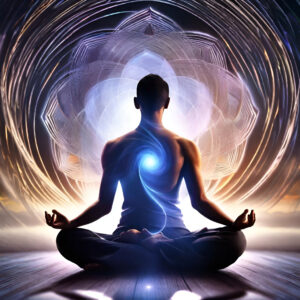REIKI
Reiki

What is Reiki?
Usui Reiki, an age-old Japanese energy healing technique, taps into the power of universal energy, channeling it from the spiritual plane directly into your physical being. This life force energy, resonating with the frequencies of light and love, can genuinely be a catalyst for transformative experiences in your life. Our soul’s essence is this love-light energy, and Reiki healing sessions work to recharge and harmonize our bodies. Reiki, a term derived from the Japanese words “Rei,” signifying universal life, and “Ki,” symbolizing energy, represents the life force energy coursing through all living beings.
Our bodies house seven primary energy hubs, commonly referred to as “chakras.” In an optimal state of harmony, divine light flows from the spiritual realm, through these chakras, and into our physical world. As a certified Reiki Master in Toronto, I utilize this energy healing technique to alleviate blockages and tension in your body—a process often known as chakra balancing.
Popularization of Energy Therapy
Recently, Reiki therapy stands as one of the most sought-after forms of energy healing in North America, particularly in Canada. The medical community acknowledges its harmlessness, and it’s common to find Reiki practitioners offering their healing services in hospitals. Reiki’s efficacy in inducing a state of profound relaxation is widely recognized.
Energy healing sessions can significantly contribute to creating an environment conducive to healing emotional, physical, and mental issues. These sessions, both relaxing and pleasant, can aid in restoring the joy and happiness you were meant to experience. This positive energy healing technique can be likened to a massage, releasing trapped emotional traumas from the body.

Reiki Session Together
Before embarking on a Reiki therapy session at my Toronto Reiki practice, it’s recommended to wear the most comfortable attire. As you lie on a massage table, I ensure your comfort with a blanket and strategically placed pillows to support your head and back. Many clients describe the experience as a serene journey between wakefulness and light sleep.
Traditional Usui Reiki sessions typically occur in silence, but I often share my observations during or after a treatment. These insights may include energetic vortexes, your spirit guides, and ancestors, providing valuable guidance for your healing journey. Depending on your preference, you can choose between silent Reiki or the more communicative modern Reiki sessions.
My modern Reiki technique has evolved from the traditional Usui method. I find it beneficial to involve my clients actively in their chakra healing process. There’s a thin line between medical intuitive readings and modern Reiki. If you’re seeking an in-depth medical intuitive reading, book an Integrated Session; otherwise, a modern Reiki session will provide a glimpse into your energetic health.
This conscious healing approach is often found insightful by many. Both recent and long-standing emotional wounds become evident in our chakra energy centers. They require recognition and release for comprehensive healing. When old wounds persist post-Reiki, I recommend an Integrated Session combining medical intuitive reading or heart clearing. With a broad spectrum of healing techniques, Reiki is fantastic for general balance—it’s like an energetic massage. However, for deeper emotional wounds, I suggest a more targeted healing approach.
Reiki Toronto or Online
As a certified Reiki Master and spiritual healer in Toronto, I tailor my approach to your specific needs. From anxiety relief to healing physical injuries, diseases, and minor emotional blockages, Reiki healing has the potential to bring about significant improvement. From a Reiki practitioner’s perspective, our bodies harbor divine light that might need occasional adjustment. Energy blockages can also stem from a toxic work environment or relationship.
Although in-person Reiki therapy sessions at my Toronto office are preferable, I also extend my Reiki healing services globally through distance healing. When we converse, let me know if you’d prefer FaceTime/WhatsApp sessions or in-person.
Contact Me & Purchase a Session Below
Articles About Reiki
Here is an article from IARP.org that talks about the trend of Reiki being used in the clinical settings for the treatment of diseases:
Reiki in the Clinical Setting is On The Rise
Today, Reiki is increasingly finding its way into institutional settings, from hospitals to hospices, and the push appears to be coming from patients as well as clinical practitioners.
“More and more, patients are requesting care beyond what most consider to be traditional health services, and hospitals are responding to the needs of the communities they serve by offering these therapies,” according to researcher Sita Ananth of Health Forum, an affiliate of the American Hospital Association (AHA). “And hospitals are responding to the needs of the communities they serve by offering these therapies.”
The therapy of Reiki is now one of the top three complementary in-patient therapies in U.S. hospitals, according to an AHA survey. Massage therapy takes first place, with 37% of hospital patients requesting it. Number two is music and art therapy at 25%, and a very close third is “healing touch therapies” at 25%, which included Reiki and Therapeutic Touch.
Physicians utilize Reiki
Reiki: Patients love it.
For example, Memorial Sloan-Kettering Cancer Center in New York not only offers Reiki therapy to patients but also teaches Reiki once a month, inviting the patients’ caregivers, the patients themselves, and the general public to learn it. “Patients love it,” says Simone Zappa, RN, an administrator in the Integrative Medicine Department at Memorial Sloan-Kettering. “And they love it because it works.”
According to an International Association of Reiki Professionals (IARP) study of “America’s Best Hospitals” (the top 25 ranked by U.S. News and World Report in 2002), 60% of them had formal or informal Reiki programs in place. All hospitals using Reiki said that they believed Reiki to be at least somewhat beneficial for patients, and 67% said they believed Reiki to be highly beneficial.
Reiki in Institutions
Acceptance of Reiki in institutions comes in part because it is so easy to incorporate into the clinical setting. It requires no specific setting, technology, or preparation. Reiki is a touch therapy, and RNs and other professionals routinely touch patients as part of their job. If they are Reiki-trained, every time they touch a patient, the patient automatically receives Reiki energy. Since long, formal sessions are not required to support a patient with Reiki therapy, opportunistic mini-treatments in the normal course of patient care make Reiki very easy to incorporate.